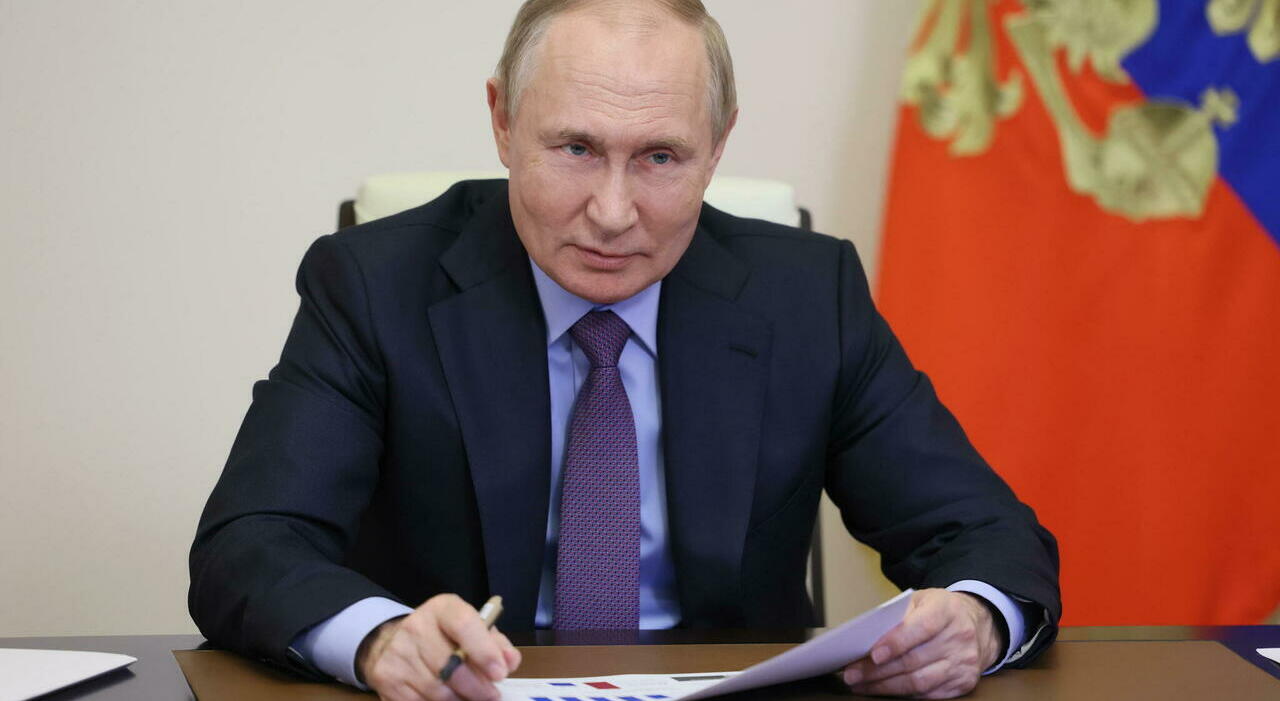For more than twenty years foreign policy of Russia It aggressively pursues two main goals. The first – as explained by Aldo Ferrari, head of ISPI Russia, the Caucasus and Central Asia and professor at Ca’ Foscari University in Venice – consists of the desire to maintain a fundamental role in the post-Soviet space, – called “close”, in particular by avoiding further expansion NATO internally after the one that happened in 2004, which also included the three Baltic republics. The second goal, Ferrari continues in his analysis, was first pointed out by Yevgeny Primakov, the foreign minister and prime minister under Yeltsin, and then achieved at least partially by Russian President Vladimir Putin Since the beginning of his rise to power: «It is a matter of building a new international political scenario based on a multipolar balance, thus rejecting American hegemony and more generally the Western claim of primacy not only politically, economically and militarily, but also in the field of values.
Ukraine reduces the number of NATO tanks by 72 thousand dollars: the offer from the Russian company
difficult relationships
But with Moscow’s invasion of Ukraine, the scenario changed and relations between the Russian Federation and former Soviet republics in Central Asia became increasingly complex and turbulent. Indeed, the Kremlin has to contend with the hostility of previously loyal states, which, after noticing the great difficulties faced by the Russian army in Ukraine, sympathized, in a somewhat veiled manner, with Volodymyr Zelensky. Which also indicates that they are ready to change at the front, given the development of the situation. In an in-depth study, officials from former Soviet states in Central Asia and the Caucasus say the war has prompted their governments to seek solutions to reduce dependence on Moscow, turning to competing powers including Turkey, Europe and the Middle East. Countries. Moscow reacts nervously, as well as firmly, as it sees its ability to assert its influence gradually crumble. For decades, Russia has been “a regent in northern Eurasia, where nothing can happen that does not satisfy the Kremlin,” asserts Ekaterina Shulman, an expert on Russian politics. “Now things seem to be changing, Russia is unlikely to emerge stronger from the war in Ukraine and that makes it difficult to say the least to impose its will on its neighbours.”
Putin, unveiled the Kremlin plan. Rossi: “The occupation of nuclear power plants is to blackmail Ukraine and the West with energy”
New links
The invasion also prompted traditional allies such as Kazakhstan and Armenia to build active relationships with powers Moscow has long sought to keep at bay in the region. Armenia has suffered violent attacks in Nagorno-Karabakh by Azerbaijan and until now Moscow has always protected Armenians from neighboring country targets, thanks to the vast energy resources that Armenia possesses. After the attack, Armenia made a desperate plea to Putin asking him to intervene, a request that fell on deaf ears for the obvious reason that Russian forces were involved in Ukraine. Another restless republic is Kazakhstan, whose strong point is its huge mineral and energy reserves: President Kasym-Jomart Tokayev is constantly looking for autonomy and does not hesitate to publicly criticize the Russian Federation. It did not agree to the conquest of Ukraine, nor to the demand for the independence of Donetsk and Luhansk, on the contrary, it preferred to install in Bucha, a Ukrainian town where massacres at the hands of the Russian forces took place, of some tents, typical homes of nomads. Kazakhs. It is here that Ukrainian soldiers who need to rest and refresh themselves after a fight are welcomed.
the oil
Putin announced his invasion on February 24, 2022, and at the time cited Kazakhstan as an exemplary model for the relationship with the countries of the former Soviet Union. He sent troops to help the president quell the bloody January riots, but Tokayev publicly disagreed with the Kremlin war, allowing hundreds of thousands of Russians to flee to Kazakhstan. “Russia is becoming increasingly toxic,” Bebet Absenpetov, a former board member of Kazakhstan’s main bank, Kazkommertsbank JSC, attacks. “What do you do when your neighbor is so inconsiderate and you can’t leave?” The pipeline through which Kazakhstan sends about 80 percent of its oil exports passes through Russia to the Black Sea port of Novorossiysk, less than 100 miles from occupied Crimea. In November, Kazakhstan said it would increase oil exports through the Caspian Sea by 1.5 million tons by pumping oil into the Baku-Ceyhan pipeline that runs from Azerbaijan to Turkey’s Mediterranean coast. Tokayev announced that flows along the route, which bypasses Russia, could rise to 20 million tons. The president has established defense relations with Turkey over the past year, and has also traveled to Saudi Arabia, Qatar and the UAE to boost trade and investment cooperation.
commercial channels
Neighboring Uzbekistan, which relies heavily on trade with Russia, had been trying to open up to new alliances even before the war. In July, it signed a cooperation agreement with the European Union. And in December, following the second meeting of the New Strategic Partnership Dialogue with the United States, a joint statement welcomed “the nation’s desire to establish new trade routes and diversify import and export markets.” As a result of international sanctions in response to the war that closed Russia’s western trade routes, Moscow’s former Soviet neighbors became more important as conduits for trade. Exports to Russia from the other members of the Moscow-led Eurasian Economic Union — Belarus, Kazakhstan, Armenia, and Kyrgyzstan — also increased, as did Turkish exports to Russia.
© Reproduction Reserved

“Infuriatingly humble analyst. Bacon maven. Proud food specialist. Certified reader. Avid writer. Zombie advocate. Incurable problem solver.”


